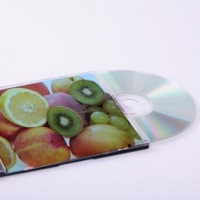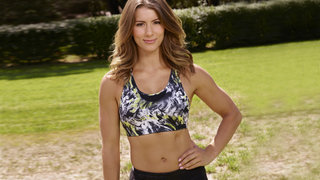1 of 23

Soda
The first on our list is perhaps the most obvious culprit, but despite numerous studies backing up the negative effects both diet and regular soda have on your body, our pros say it's shocking how much of it people drink. "This is not a benign food!" says Carissa Bealert, RD and co-owner of Evolution Fitness Orlando. "Artificial sweeteners and aspartame in diet soda in particular can mess with our body's regulatory system. Plus, soda doesn't nourish you. It doesn't give your body anything at all." In addition to excess calories, studies have linked soda to tooth decay, headaches, increased risk of type 2 diabetes, and decreased bone health. And despite its name, diet soda is no better: researchers at the University of Texas found that in the course of a decade, diet soda drinkers had a 70% greater waist circumference than non-drinkers. To quit a soda habit, Bealert suggests overloading your glass with ice. The soda will be diluted, and you can steadily wean yourself off. If you still need a little extra something, Bealert suggests zero-calorie sparkling water with natural flavors.
RELATED: 13 Ways to Stop Drinking Soda for Good
2 of 23
3 of 23

Juice
You hit the local juice bar before work and think you're making a healthy choice by drinking your breakfast. But Keren Gilbert, RD and founder of Decision Nutrition, says it's not that simple. Even though you're consuming fruits and veggies, a lot of the good stuff is left behind in the juicing process. "When you juice something, you're taking all the vitamins and sugars and leaving out all of the fiber," she says. Fiber slows down sugar absorption in the body, so without it, sugar is absorbed too quickly. This means that your tummy could be grumbling in an hour—which totally defeats the purpose of a diet, says Gilbert.
3 of 23
4 of 23
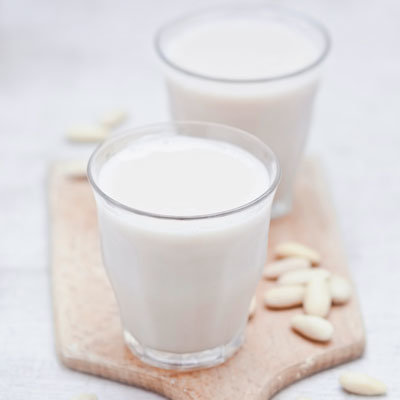
Nut milk
Lactose intolerance or sensitive stomachs aside, old fashioned cow's milk is the way to go if you want the most nutritional oomph, says Samantha Lynch, RD, founder of Samantha Lynch Nutrition. One cup of non-fat milk—roughly what you might use in a bowl of cereal—contains 8 grams of protein and only 82 calories. Lynch says she's a fan of the health benefits of low-fat dairy, especially because there are some troubling ingredients in many varieties of store-bought nut milk. Carrageenan, a substance used in many non-dairy milk products as a thickening agent, has been linked to increased gastrointestinal inflammation—bad news for those with digestive disorders like Crohn's disease and IBD.
RELATED: 14 Non-Dairy Foods That Are High in Calcium
4 of 23
5 of 23
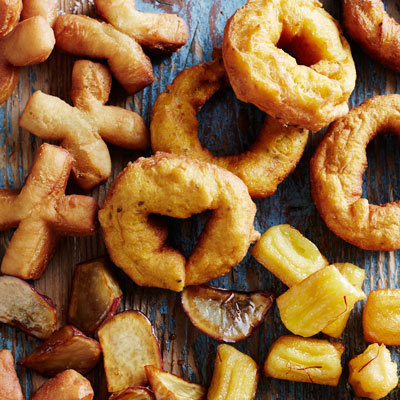
Fried food
Duh! Even though we all know fried foods are a healthy diet's arch-nemesis, fries (sweet potato or not—sorry!), chicken fingers, and onion rings are the default side dish to meals everywhere. Elisa Zied, RD, and founder of Zied Health Communications, says portion sizes of these artery-clogging items at restaurants and sports venues can be twice or three times the amount, equaling a diet disaster. "If you're going to have fried food, share it," she says. "Or order the smallest size possible, and keep it to once in a while at best." Even better, Zied says, is making healthier versions of familiar foods at home, such as baked fresh-cut fries with a drizzle of olive oil.
5 of 23
6 of 23
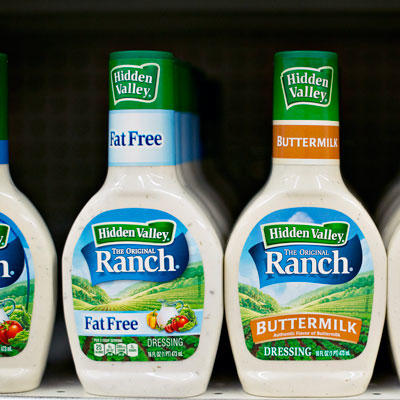
Fat-free dressing
Bealert says going fat-free (dressings are just one example) is one of the biggest misconceptions she sees in clients who want to lose weight. In fact, not all fats are bad for you. "Good" fats keep you full and help you absorb more nutrients from food. They're also beneficial for your heart: monounsaturated fatty acids (found in nuts, avocados, olive oil, and canola oil) can lower cholesterol levels and your risk of getting heart disease, while polyunsaturated fatty acids (found in fatty fish like salmon and mackerel, as well as corn and soybean oils) are a great source of heart-healthy omega-3 and omega-6 fatty acids. Another downside to low-fat diets: When you take out fat, you replace it with artificial sugars and other additives to pump up the flavor, Bealert says. When it comes to salad dressing, she recommends making homemade vinaigrette with honey mustard, olive oil, and apple cider vinegar instead of purchasing a low fat bottled variety.
Watch the video: How to Make Your Own Salad Dressing
6 of 23
7 of 23

Alcohol
Serious about losing weight and getting healthy? Then you'll have to ditch that daily glass of wine. Bealert suggest having no more than two drinks a week, or even fewer if you can. In addition to the added liquid calories, drinking can easily pull you off track from your diet goals. "The more you drink, the more likely you're going to have an unhealthy snack," she says. "And you probably won't want to start the next morning with egg whites and oatmeal." A Texas Tech University study found that alcohol makes women's brains more sensitive to the smell of food, which explains why it's so difficult to turn down that late-night pizza after you've had a few drinks. Sometimes this is all it takes to lose focus, and before you know it, you've completely ditched a new healthy eating plan.
7 of 23
8 of 23
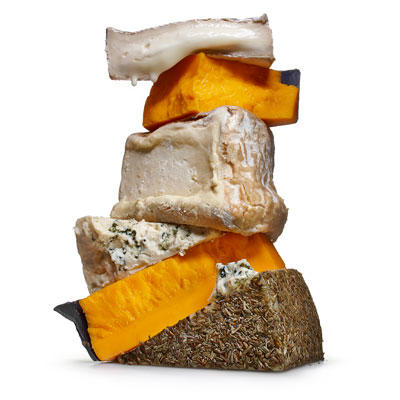
Cheese
Yes, cheese contains bone-building calcium—and there are low-fat versions—but our pros say the bad can easily outweigh the good when portions get out of hand, which is very easily done. "Almost universally, everyone over-portions cheese," says Gilbert. "It's not that you can't have it every once in a while, but people put it in eggs, on salads, sandwiches, everywhere." Cheese is typically high in saturated fat, and for many people dairy can be difficult to digest, causing bloating. Gilbert suggests cutting out dairy completely for one week, testing the waters to see how your stomach reacts, then choosing one dish to add back an appropriate amount of cheese.
RELATED: Best and Worst Foods to Avoid Bloating
8 of 23
9 of 23
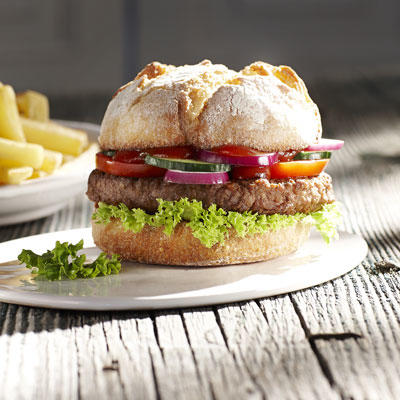
Red meat
New research from the World Health Organization found red meat to be a potential carcinogen linked to colorectal, prostate, and pancreatic cancer. That's probably more than enough to kick a cheeseburger habit, but the immediate risk to your heart health solidifies this as a red-flag food. Gilbert says it only takes one or two servings of red meat a week to take you over the limit on saturated fat. The better choices are fish and lean meats like turkey or chicken. Boost flavor and keep turkey burgers juicy by choosing a 93% lean ground meat and adding onions, peppers, and spinach to the patties.
9 of 23
10 of 23
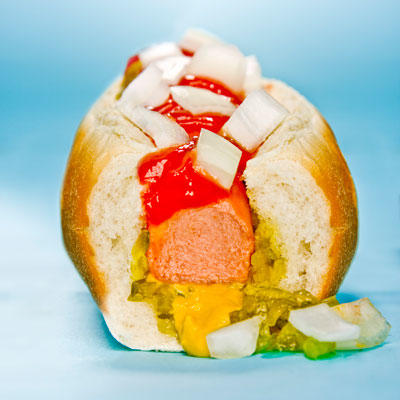
Processed meats
The same WHO report also found a link between cancer and processed meats like bacon, hot dogs, and sausages. Processed meats that have been cured, salted, smoked, or preserved are known carcinogens and can increase your risk for colon cancer in particular. If you struggle with the idea of giving up bacon completely, Health's contributing nutrition editor Cynthia Sass, MPH, RD, recommends saving it for an occasional treat. "Have a few strips of bacon at Sunday brunch or a few slices of pepperoni pizza on Friday night—but not both, and none during the week," she told Health in an earlier interview.
10 of 23
11 of 23
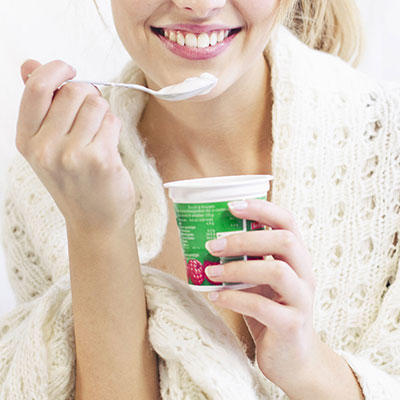
Yogurt with fruit on the bottom
Confused as to why RDs would nix two healthy foods like fruit and yogurt? The answer lies in the syrupy fruit flavor that sweetens tart yogurt. Bealert says many yogurts with pre-added fruit or jam-like fruit flavoring can rack up as much as 20 to 30 grams of sugar. "That's the equivalent of five or six tablespoons of sugar!" she says. "And you'd never sit down and eat a bowl of sugar for your mid-day snack." Go for plain low-fat Greek yogurt instead and add some fresh fruit, or choose cups that have honey or fruit on the side for better control.
RELATED: 9 Ways to Stop Eating Sugar for Good
11 of 23
12 of 23
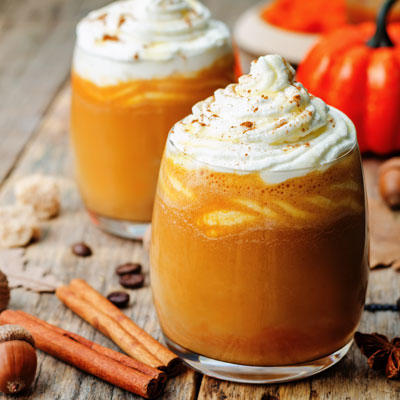
Flavored coffee drinks
Pumpkin spice lattes may only be available for a limited time, but that doesn't negate the excess liquid calories you consume if you drink these indulgent lattes on a regular basis. Whether it's the limited availability or a 4-oclock slump, Bealert says people rationalize decadent drinks like this, and those calories can really add up. Instead of ordering a calorie-rich flavored drink, opt for black coffee or coffee with a splash of low-fat milk. Or combat your afternoon fatigue with a brisk 10-minute walk (studies have shown that this can give you an energy boost for up to two hours!).
RELATED: 10 Coffee Drinks That Are Worse for You Than a Candy Bar
12 of 23
13 of 23
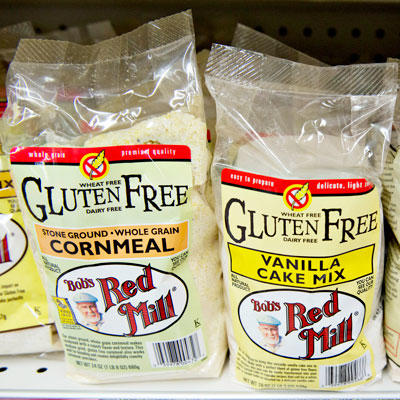
Gluten-free foods
Adhering to a gluten-free diet is vital for people suffering from a gluten-intolerance or Celiac disease, but going gluten-free isn't necessarily a way to lose weight or eat healthier. Lynch says many gluten-free foods and recipes use tapioca flour as a binder substitute, but this ingredient provides little or no nutrition—not to mention that gluten-free cookies, muffins, pretzels, and the like are still junk food. Instead of focusing on gluten-free labels, aim for well-rounded diet that includes plenty of fresh fruits, veggies, beans, lentils, nuts, lean proteins, and—yes—whole grains. A great source of fiber, whole grains can help regulate blood sugar, lower LDL (bad) cholesterol, reduce colon cancer risk, and aid digestion, so there are plenty of reasons to continue to enjoy them as part of a healthy diet.
13 of 23
14 of 23

Ice cream and frozen yogurt
As delicious as that pint of Ben & Jerry's in your freezer is, it's loaded with sugar and calories. Indulge in your craving too often and you're looking at increased blood sugar levels, weight gain over time, inflammation throughout the body, and a rise in LDL (bad) cholesterol, says Lynch. The good news? You can still enjoy a sweet treat without all the saturated fat and calories. Try making banana ice cream by blending frozen bananas with low-fat milk and topping with heart-healthy walnuts. And on the rare occasion that you do indulge in ice cream, skip the low-fat varieties and frozen yogurt and opt for a small serving of gelato instead. This creamy dessert has less butterfat and a denser texture than ice cream, so it will leave you feeling more satisfied.
14 of 23
15 of 23
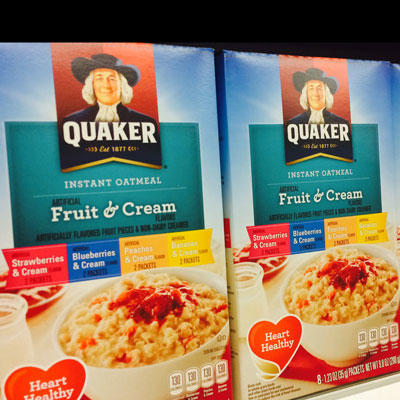
Flavored instant oatmeal
While convenient, those individual packets of oatmeal are filled with 15 to 20 grams of unnecessary sugar, says Gilbert. These artificial sweeteners trigger cravings, because once blood sugar levels plummet after an hour, you'll be hungry again. Gilbert says you're better off with rolled oats (which cook very quickly, too) with real fruit, or overnight oats.
Watch the video: How to Make Overnight Oats
15 of 23
16 of 23
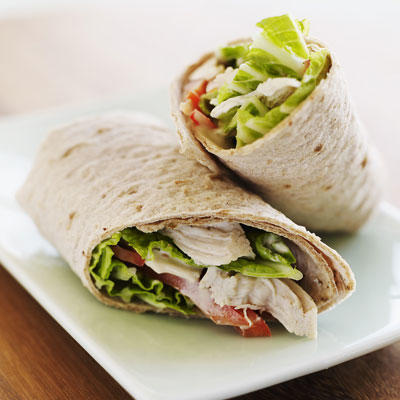
Wraps
You might be surprised to learn that nutritionists prefer bread to wraps, but it's true—under certain circumstances. "Many people don't realize how many calories are in the average restaurant wrap," says Bealert. Most deli or café wraps clock in around 300 calories, which can easily take your calorie count way over the edge once you factor in all the fillings. Bealert says two slices of whole-grain bread will typically cost you just 200 calories with the added bonus of extra fiber.
16 of 23
17 of 23
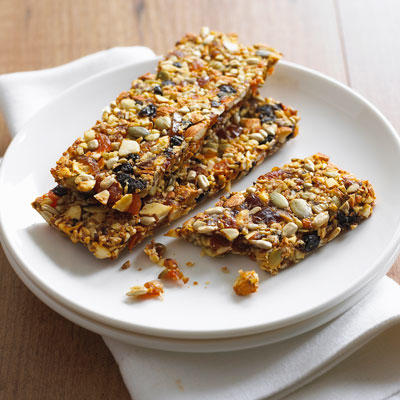
Granola
Granola is easily mistaken for a health food, but if you've ever used it to top your yogurt, you know how difficult it can be to stick to an appropriate portion of this crunchy snack (most experts recommend no more than 2/3 a cup per serving). Therein lies the problem, says Zied: "Granola is high in fat and calories and often provides a good dose of added sugar." For a healthier alternative that doesn't wreck your waistline, she suggests cutting back on the amount of granola, going low-fat, and mixing it with one to two tablespoons of chopped nuts to add protein.
RELATED: 16 Granola Recipes That Slash Sugar and Fat
17 of 23
18 of 23
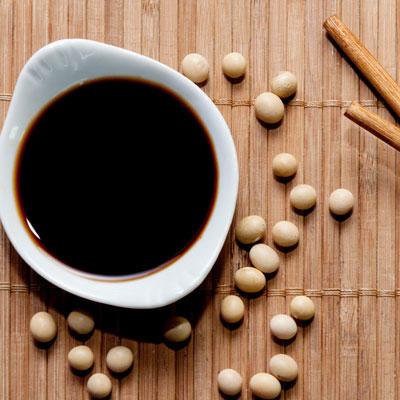
Soy sauce
Douse your sushi in soy sauce, and the next thing you know you're feeling stuffed, bloated and uncomfortable. That's all thanks to its astronomically high levels of sodium. "Sodium holds on to water, which can translate to water retention and weight gain," says Gilbert. "Plus, it's really bad for blood pressure." Ask for low-sodium soy sauce instead, and use just a dash. As for other high-sodium sauces—we're looking at you, sweet and sour—Gilbert says to ask for it on the side in order to better control the amount you consume.
18 of 23
19 of 23
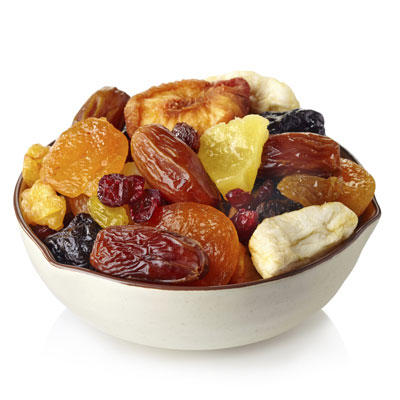
Dried fruit
Consider this: a fresh apricot is roughly the size of a golf ball, so you likely wouldn't eat five in one sitting. On the other hand, it's not difficult to imagine mindlessly snacking on five or more (much smaller) dried apricots. That serving-size misperception adds up to lots of sugar and calories, no matter what kind of dried fruit you choose. "Two spoonfuls of dried fruit have health benefits," says Bealert. "It's when you don't control portions—that's the problem."
19 of 23
20 of 23
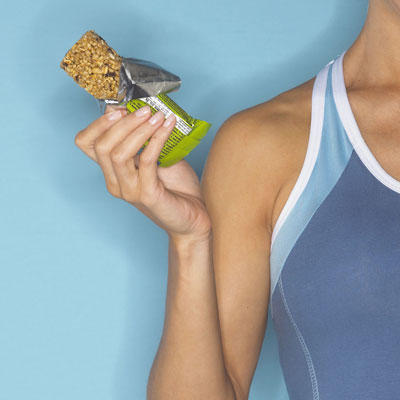
Protein bars
There's a time and place for a generous helping of protein—after a sweaty, strenuous workout, for example. However, many people simply don't need the massive amounts of protein in many of the bars that line supermarket checkout aisles. "Thirty grams of protein is too much for most people at one time for a snack," says Bealert. Where all that protein comes from is another cause for concern. Bealert says that many of the ingredients in these bars are unrecognizable, may not come from whole foods, and often contain lots of sugar. A much better post-gym snack to help you recharge and rebuild muscles? Chocolate milk. It contains the carbs and protein your body craves, but not more than it needs.
20 of 23
21 of 23
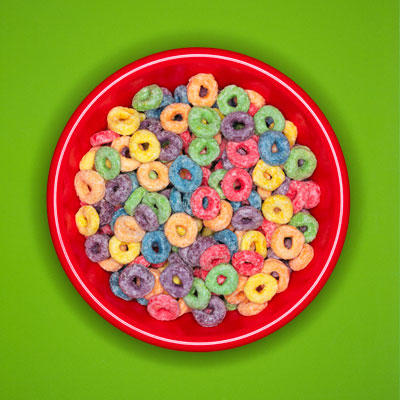
Cereal
"Sugary breakfast cereal made with mostly refined grains can contain lots of added sugar and very little fiber," says Zied. That's a mid-morning hunger pang waiting to happen. Instead, she says to pick up a box of puffy or flaky cereal with at least 3 or 4 grams of fiber and no more than a one-to-two fiber-to-sugar ratio for every 1-cup serving. For example: "If the cereal has 4 grams of fiber, then 8 grams of sugar or less per cup is a good rule of thumb," says Zied.
RELATED: 13 Foods That are Saltier Than You Realize
21 of 23
22 of 23
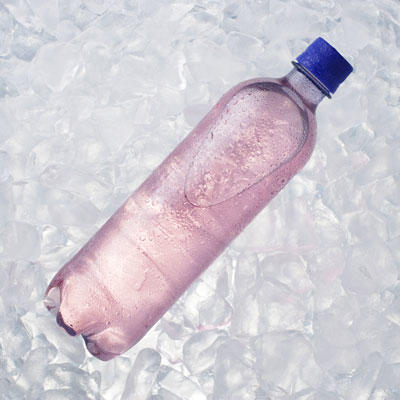
Enhanced waters
As with a diet soda addiction, the artificial sweeteners found in many enhanced and flavored waters can create an unquenchable thirst and never-ending cravings. Real sugar causes a receptor in the brain to release dopamine, the hormone associated with pleasure, but when you ingest artificial sugar, the body wants more (and more!) because you aren't providing it with the real deal, says Lynch. And don't be fooled by the health claims either. "People think they're getting extra vitamins in their diet, but it's all about marketing," she says. Next time you're craving candy-flavored water, reach for unsweetened iced tea instead.
22 of 23


